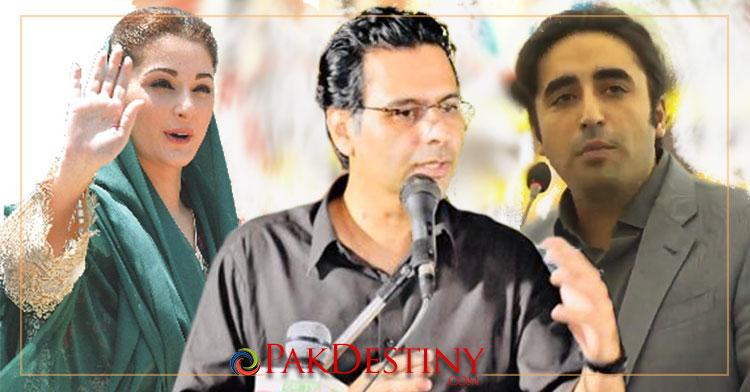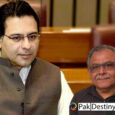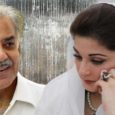
By Sarvat Hossein
It was amazingly horrendous decision to ban student unions, to quashed the voice of country’s youth. One might wonder what caused the government of the day to take this appalling step.
In 1984, on 9th February, the dictator General Zia-ul-Haq placed a ban on all Student Unions across the country (the province of Sindh had already made the formation of student unions illegal in 1979). Most universities ask, indeed compel students to sign an affidavit declaring that they will not take part in any political activity on campus.
Two schools of thought come into play on this issue. Some believe this measure has been brought into being to curb violence on the university campuses between the right and left leaning factions.
Arguably, others have suggested that there was a conspiratorial approach involving the American delivery of F-16s fighter jets to the Zia-Ul-Haq regime on condition that the student-led grassroots democracy in Pakistan would be stifled.
It does not matter what the true reason for that illicit ban on student unions was, but undoubtedly this surreal decision has compromised democracy in the country and paralyzed the political system which had previously been ‘fairer’ for 35 years, a very long period indeed.
The current state of political discourse in the country is depressing, given that the youth of the country are to a large extent being excluded from the vigorous debates which usually form the backbone of any strong democratic process. The mainstream Political parties have not revived the student unions in this 35-year period, and recently, students marched across the country demanding the restoration of the unions.
Having maintained the ban on student unions in Pakistan, Nawaz Sharif and Zardari, both ageing political leaders of the mainstream political parties, what choices does the country face in the future? Bilawal Bhutto, Maryam Nawaz and let us not forget Moonis Elahi? All three have emerged from established and prominent political families.
Bilalwal Bhutto-Zardari

Bilawal, an heir to one of Pakistan’s most influential political dynasties must do more than simply follow in his forefather’s footsteps. As a young well-educated person who has been intellectually well groomed and has also enjoyed considerable exposure to the outside world, the masses naturally have high expectations of him. A unifying posture is mandatory from anyone who expects to lead the nation in due course.
As a young aspirant, Mr Bhutto Zardari has been declared one of the richest MPs in the country by the Election Commission of Pakistan, with assets in excess of Rs1.54 billion. Some analysts think he is charismatic campaigner in a political atmosphere charged with animosity, abuse and name calling. Certainly, he is under heavy burden to continue with his family’s politically legacy.
Maryam Nawaz

Ms Maryam Sharif on the other hand, would appear to be politically more mature than Bilawal Bhutto. What do we know about her? Critics might shed some light on her and say that thus far, she also has not contributed significantly towards the political discourse in the country and society.
Maryam Nawaz is well-known as a daughter of Ex- Prime Minister of Nawaz Sharif and is often compared to Benazir Bhutto. The former Interior Minister, Choudhry Nisar once said, on comparing Maryam with former Premier Benazir Bhutto, that its wrong and Maryam has a long way to go to prove herself as a leader.
Moonis Elahi

A smart and cool Moonis Elahi is a leading politician of the Pakistan Muslim League – Quaid (PML-Q). An elected MNA from Gujrat constituency in 2018 election, he is a young promising politician, also belonging to the influential political family of Gujarat, the Choudhry’s.
Moonas Elahi is a graduate from the University of Pennsylvania, USA. Some critics believe that if Moonis manages to gain the attention of the youth in coming years, he probably has a great chance to emerge as a significant young leader, with the potential to provide excellent leadership for the country. Mr Moonis Elahi has shown a notable interest to champion the cause of the ‘environment’ and launched the Kala Bagh Dam movement to raise the alarm on the issue of water scarcity. If he succeeds in achieving his objective on that front, that will reflect a major plus point towards his political career.
The question that comes to mind is which one has the charisma, insight, knowledge and true ability to eventually become a Prime Minister of the country and specifically, how they will attract voters, as they are all relatively young leaders. Can they fill the vacuum which Pakistan will eventually have to fill?
If so, why has the government not amended its position on political activity amongst the nation’s student body, many of the same age as these aspiring leaders? Or is serious political activity and engagement reserved for those who are from an established political heritage or only those who have ‘completed their education’?
The public will ultimately come to a decision on this critical issue in due course, one hopes this will be sooner rather than later. — Pak Destiny








No doubt Bilawal Zardari is a young political leader But it would be understandable to call this older leaders Moonis and Maryam Safdar as young leaders haha 😀
Of these three, only Bilawal is the young leader, and the other two are old age leaders 😮
If Bilawal stops defending corruption, he is our leader 😉
Bilawal can never become prime minister if Zardari does politics in style
If we allow student unions then thier feudal political leadership will fall so that’s why PPP and PMLN never did anything for student politics. Now they are just making noise to oppose IK out of mothing